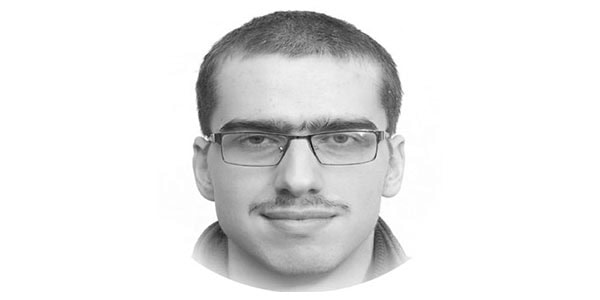Global impact of Russia-Ukraine war
AS one of the most important events of the 21st Century, Russia’s invasion of Ukraine will, without a doubt, impact the world insignificant ways.
However, foreseeing the impacts is hard without the benefit of experience as the current war in Ukraine is unlike any of the countless wars since 1945.
As an invasion of a big nation by another big nation, it is akin to the conflicts that made up the Second World War, back when the world was very different from now.
But the way the Ukraine invasion parallels the invasions that set off WW2 should alert us to how dangerous the current situation.
A major war taking place within the developed world is unheard of since 1945.One of the biggest reasons is the advent of nuclear technology, which introduces extreme risks in warfare.
Not only do Russia and NATO have the world’s biggest nuclear arsenals, making the current standoff between them a very serious concern, but Ukraine, where the violence is taking place, has 15 nuclear reactors in 4 power plants in operation plus Chernobyl’s hazardous remnants.
Another Chernobyl-like disaster caused by kinetic activity has the potential to affect much of Europe, though only a nuclear war would produce enough fallout to endanger the entire world.
A problem materializing now is the war’s economic consequences.A war that takes place in a country as wealthy as Ukraine has very different implications than war in places like Syria and Afghanistan today or Korea and Vietnam back in the mid-twentieth century.
The same goes for the way Russia is being subjected to sweeping international sanctions of the kind only small countries like Cuba and Iraq normally experience.
Because of this, Western countries are suffering a massive energy crisis.
Other issues include the prospects for Russia’s Sputnik V COVID-19 vaccine, a popular vaccine for lower-income countries, now that West is sanctioning Sputnik V’s main financier, the Russian Direct Investment Fund (RDIF).
While an energy crisis is this war’s main fallout for the developed world, the main impact on the developing world is likely to be a food crisis.
Russia and Ukraine are among the biggest exporters of food to hunger-prone low-and-middle income countries, especially in North Africa, the Middle East and West Asia, but costs are now rising.
History may be about to repeat itself.The world was already suffering a global recession since 2008 when extreme weather events in 2010 caused a drop in grain exports from Russia and China, leading to a surge in global food prices so severe as to have triggered the Arab Spring.
Now, after two years of the pandemic and associated inflation and supply chain crisis, the world’s breadbaskets in Ukraine and Russia are imperilled.
Just like a decade ago, this is likely to turn out to be a disaster that afflicts and, maybe, changes the world, too.
An even bigger risk is how the Ukraine invasion could set off a destabilization of the global security environment.
This is actually a fundamental element of the modern world.Austria’s invasion of Serbia in 1914 and Germany’s invasion of Poland in 1939 rapidly escalated into world wars.
Another example is the USSR taking advantage of the world’s attention being diverted by the Suez invasion to invade Hungary in 1956.
There are great fears of today’s war between Russia and Ukraine escalating within Europe, but it could also have knock-on effects far and wide.
We are already seeing this happen with Japan ramping up its territorial dispute with Russia over the Kuril Islands.
Japan must feel it has a stronger position to assert its claims when Russia is in a vulnerable state due to war with Ukraine and Russia’s unpopularity on the world stage emboldens Japan.
Another way the Russia-Ukraine war leads the world into greater hostility and violence is simply by teaching the world how it is done.
The modern combination of rapidly advancing technology and development with rarity of major wars means that many wars that erupt are novel experiences for humanity.
World War 1 was the first war between great powers in the age of high-explosives and other modern weaponry and World War-II was the first when airplanes, tanks and submarines were widely available.
Such wars act as a treasure-trove of lessons to drive future wars.For example, in the early days of WW2, planes from the British aircraft carrier HMS Illustrious sank half of Italy’s naval fleet stationed in Taranto.
As the first military strike by an aircraft carrier in history, this event is thought to have been closely studied by the Japanese and used as the model for their strike on Pearl Harbour, which escalated WW-II into a global conflict and a nuclear attack.
Nations across the globe are closely observing Russia’s invasion of Ukraine and the novelties the conflict presents.
Everyone is learning how such an invasion can be done and what consequences it can produce.
Some will inevitably use the lessons of Russian invasion of Ukraine as a guide for their own kinetic plans of invasions and conquest or resolutions of conflict situations they find themselves in.
Think of how the West’s response to Russia’s invasion of Ukraine must be making China reassess its risks of retaking Taiwan.
Note that India fired a missile into Pakistan on 9 March and calls it an accident.
But is it an accident or a test-fire by a bigger neighbour with well-known belligerent design against Pakistan?
Bottom line is that Russia invading Ukraine, a nation of forty-four million people and the second largest in Europe, will encourage similar aggressive behaviour around the world and that might be the principal way this war changes the world.
—The writer is Director at Pakistan’s People Led Disaster Management.










